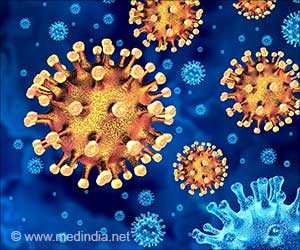Minister Ram Vilas Paswan promises a new policy for the poor that will ensure them free medicines, health insurance and subsidised treatment for tuberculosis, AIDS and cancer.
Chemicals and Fertiliser Minister Ram Vilas Paswan promises a new policy for the poor that will ensure them free medicines, health insurance and subsidised treatment for tuberculosis, AIDS and cancer.
"By Jan 1 we hope to have drug banks operational at district headquarters that will offer free medication to the poor," Paswan said in an interview here."The banks will be stocked with the help of the drug manufacturers who have agreed to provide 0.5 percent of their annual turnover for this effort," Paswan told IANS.
As per ministry estimates, drugs worth Rs.450 million are to be contributed annually towards this effort by small and medium-sized enterprises in the pharma industry, which has a turnover over Rs.90 billion.
"We are also studying the launching of a health insurance programme soon for below the poverty line (BPL) families," said Paswan.
Free medication and health insurance cover for the BPL (below poverty line) population, estimated at 300 million are expected to be part of the new policy.
"The 14-member committee formulating the new policy is studying including the health insurance cover. The final report is expected by month-end and we will go to the cabinet in November to seek approval," Paswan said.
Advertisement
As part of the promises made in the United Progressive Alliance's common minimum programme to provide drugs at reasonable prices to the common man, the ministry favours adoption of some of the recommendations of two earlier committees.
With the government announcing plans of raising the budgetary allocation for the health sector from 0.9 percent of GDP to 2-3 percent, Paswan said the additional resources would make it possible to offer health insurance to the poor in rural and urban areas.
"In addition to the proposed hike in health allocation, there is the Prime Minister's Relief Fund, the Health Minister's Relief Fund and other contingency funds that can be utilised to provide facilities for the poor," said Paswan.
Another important step proposed by the ministry is offering free or subsidised medication for critical illnesses like cancer and HIV/AIDS.
"The policy will address the need to provide subsidised drugs for critical or life-threatening diseases that require expensive treatment. In the case of BPL population, we hope to offer free medication. But for those above poverty line (APL), (we will) provide drugs at 50 percent subsidised rates," Paswan added.
The innovative step may introduce a new model of drug purchase by state-run hospitals.
"We have proposed that government hospitals procure medicines for treatment of cancer, HIV/AIDS, tuberculosis and other critical illness directly from the manufactures and thereby eliminate the 15 percent wholesaler and 35 percent retailer margin," said Paswan.
"This is an achievable goal as we have closely studied the Rajasthan formula, which has succeeded in providing cheaper medicines to patients," he said.
The inspiration behind this is the state-run Rajasthan Medicare Relief Society that directly procures medicines from manufacturers and sells to patients with a limited mark-up price.
Source-IANS
SRM











